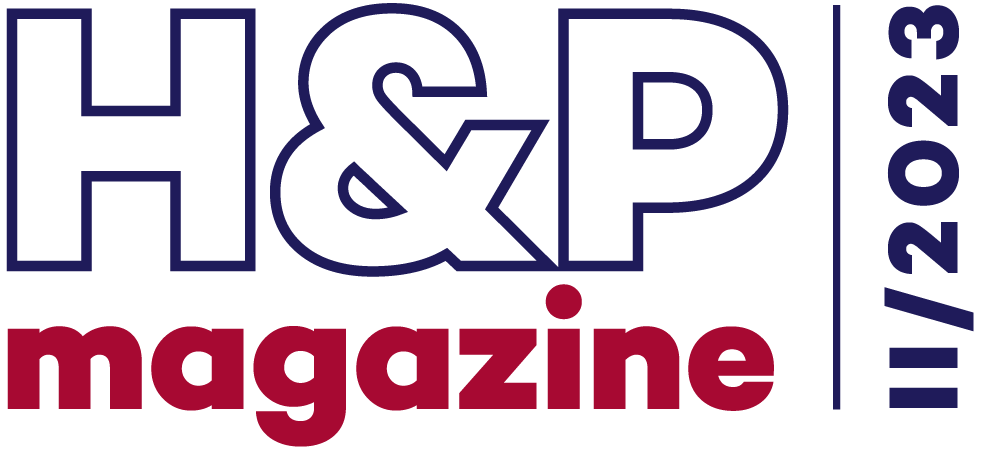That there is no way your company can be involved in VAT fraud? What you may not realise is that all it actually takes is for one link in the supply chain to fail to pay VAT and then you find out that you weren't careful enough when verifying your business partners. And the problem arises. The tax office may then ask you to pay the VAT that the potential fraudster has not paid. So how can you effectively defend yourself against unwitting involvement in VAT fraud?
According to Europol's latest estimates, VAT fraud is the most profitable crime in the EU, causing Member States tax losses of around EUR 50 billion per year. Often, however, these can be cases that few would expect. The typical reaction of the affected company is as follows: "We are a leader in the industry in the Czech Republic, Germany, but also in the United States, where the parent company is based. The company's core values include moral integrity. We meet our obligations to customers, employees, business partners and the government duly and on time. We were all the more shocked by the tax office's suspicion that we were part of a VAT fraud chain."
This is not an unrealistic case at all. Virtually any company that does not pay sufficient attention to the setting up and following of control mechanisms in relation to suppliers and business partners can become a victim of unwitting involvement in VAT fraud. And unfortunately, we know from tax due diligence we conduct and from our dealings with tax authorities in the context of tax inspections that companies do not often address prevention.
The tax office uses the so-called ‘knowledge test’ to determine whether you could or should have known about possible fraud.
In the case of VAT fraud, we are talking about situations where a supplier of goods or services in the supply chain fails to pay VAT to the State as required by law. If the company has not declared or paid the correct amount of VAT, the tax office will take steps to assess the VAT properly and ensure that the arrears are paid.
As part of the investigation, the tax office also investigates whether it was a fault of the taxpayer or whether it was deliberate VAT fraud. In such a case, there is a risk that the claim of other companies in the supply chain to deduct VAT will be disputed.
A lot of questions that need to be answered
Then comes the so-called knowledge test (also known as the Kittel principle), which is designed to reveal how much the company may have known about the fraud. If the tax administrator suspects that although the company is complying with its VAT obligations duly and on time, it could still have become part of a VAT fraud chain, it will usually ask the company to answer questions about its business partner, usually the supplier who has not paid the VAT.
For example: Who initiated the cooperation with the supplier; whether the company's representatives met the supplier in person; whether the supplier's history and background (location of the registered office, business premises, qualifications of employees, etc.) correspond to the agreed transaction; who agreed on the price for the taxable supply; why the price is too low or too high; how invoices for goods or services were paid; whether the company verified if the supplier is listed as an unreliable payer, etc.
All these questions are part of the above-mentioned knowledge test and are dealt with not only by the Czech tax administrator, but also by the Supreme Administrative Court and the Court of Justice of the EU (CJEU), which has repeatedly dealt with VAT fraud cases and whose conclusions are crucial for the assessment of similar cases.
Evidence on the table
According to the CJEU, tax authorities have the right, and even the obligation, to deny a claim to deduct VAT if it is proven that the claim was made fraudulently. Therefore, tax authorities may deny the claim to deduct tax not only if the taxpayer himself committed the VAT evasion, but also if it is proven that the taxpayer who received the taxable supply in the form of goods or services knew or should have known that by purchasing them, he was participating in the supply which was part of the VAT evasion.
It is therefore sufficient if a supplier or another entity in the supply chain commits VAT fraud and suspicion may fall on the other companies involved in the transaction. Here it should be stressed that VAT fraud may occur both upstream and downstream in the supply chain. The tax office will also deny the claim to deduct VAT in a situation where the taxpayer did not benefit from the fraud, but nevertheless assisted the perpetrators of this VAT evasion (whether knowingly or unknowingly) and became an accomplice.
However, it is up to the tax office to prove that you could have known about the fraud in the first place. In defence of taxpayers, the CJEU has repeatedly confirmed that it is not possible to sanction the taxpayer who did not know or could not have known that tax evasion had occurred. The mere fact that VAT fraud has occurred in the supply chain, or that the supply chain members knew each other, or that the supplier has been identified as an unreliable taxpayer, is not sufficient evidence. But if we were talking about a combination of similar findings, the situation would be quite different.
Trust, but verify
On the one hand, it is therefore up to tax authorities to prove, in a legally sufficient manner, the existence of objective circumstances on the basis of which it can be assumed that the taxpayer has committed VAT evasion or knew or should have known about it. On the other hand, you should prove (and be prepared to do so) that you have exercised a standard duty of care that may be required to prevent yourself from being unwittingly involved in VAT fraud. This means that you have properly and repeatedly verified your business partners to ensure their credibility.
If there are indications of tax evasion or if it is an area of business that is often at risk of tax fraud, the taxable person can be expected or required to conduct enhanced vigilance in accordance with existing case law. However, the tax administrator cannot require the taxpayer to verify its business partners as thoroughly as the tax administrator can do itself. As a taxpayer, you are not obliged to verify whether the supplier is a taxable person, has the goods available, has fulfilled his obligations to file a tax return and pay VAT, etc.
Tax offices are very active in working with the knowledge test and we have encountered several cases where tax adjustment assessments in the hundreds of millions of CZK have been addressed.
The knowledge test that is not known
From our experience over the last five years, we can confirm that most entrepreneurs are not aware of the existence of the knowledge test and therefore are not aware of related requirements for the implementation of processes and control mechanisms when concluding significant transactions. Most of them thus live in ignorance and think that the only threat in the field of VAT is the guarantee for tax in connection with the institute of the so-called unreliable taxpayer. However, the guarantee for tax and the so-called knowledge test are two completely independent institutes that exist separately in tax law, case law and current administrative practice, and each taxpayer must be able to deal with the pitfalls of both institutes.
Our experience over the past years also clearly confirms that the so-called knowledge test is by no means just a theoretical discipline. Tax offices are very active in working with the knowledge test and we have encountered several cases where tax adjustment assessments in the hundreds of millions of CZK have been addressed.
Rules to prevention
So how can you ideally reduce this risk? First and foremost, you should have proper internal control mechanisms in place to verify business partners. They include a set of information about business partners to be verified, which should be prepared at the beginning of the cooperation and then regularly updated and archived. Also, set up an action plan in advance in your company for situations where you find that some of your business partners (or the transactions) are risky.
If you identify the risk but do not take any action, the risk of being denied the claim to deduct VAT by the tax office increases significantly. Do not underestimate the archiving of relevant documents and information for future communication with the tax administrator.
Usually, the procurement department is the first that comes into contact with business partners. A prerequisite for future success is the training of the representatives of this department, and possibly other employees who come into contact with suppliers and customers. All such employees should be aware of the risks associated with potential VAT fraud and be able to identify clues that may reveal future fraud. Clearly, the finance department cannot be alone in this, as it often has limited or delayed access to some information.
You should also verify contractual documentation templates. They should contain appropriate clauses to enable you to take preventive action when you identify any risk in the supply chain. This includes, for example, the possibility of securing VAT payment to the tax administrator’s account. Also check how your processes for concluding significant contracts with regard to verifying signs typical of transactions affected by tax fraud are set up.










